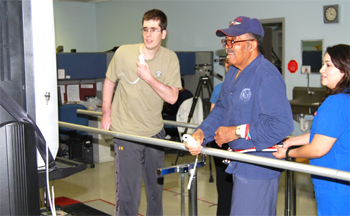 |
|||
|
|
|||
| Returning Service Members (OEF/OIF) | |||
How Do I Get Help? Am I Eligible?You may be eligible for VA benefits if you are:
Contact the VA to find out! Visit the VA Health Care Eligibility & Enrollment site for more information. Care ManagementEvery VA Medical Center has an OEF/OIF Care Management Team ready to welcome OEF/OIF veterans and help coordinate your care. Case Managers, who are either nurses or social workers, coordinate patient care activities and help you navigate your way through the VA system. Case Managers, who are either nurses or social workers, coordinate patient care activities and help you navigate your way through the VA system. A Transition Patient Advocate (TPA) acts as a personal advocate as you move throughout the VA healthcare system. To contact the OEF/OIF Care Management Team check your local VA medical center web site. You can find the web site using the VA Facility Locator. Federal Recovery Coordination Program
To get into the Federal Recovery Coordination Program, you must be seriously wounded, ill or injured and be referred. You are referred into the program by a member of your multi-disciplinary team, your commander, wounded warrior program or through self-referral. The criteria include the following:
An assigned Federal Recovery Coordinator will develop a Federal Individualized Recovery Plan with input from the service member or veteran's multidisciplinary heath care team, the service member or veteran, and their family or caregiver. They track the care, management and transition of a recovering service member or veteran through recovery, rehabilitation, and reintegration. | |||||||||||||||||||||||||